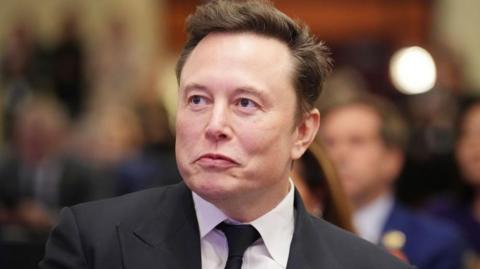OpenAI was founded in 2015 with the aim of building an artificial general intelligence (AGI) - generally taken to mean AI that can perform any task a human being is capable of.
In 2019, the firm announced a new "capped profit" structure allowing it to raise money.
Microsoft made an initial $1bn investment into OpenAI shortly thereafter - increasing this to a multi-year, multi-billion dollar partnership in 2023.
The lawsuit also accuses boss Sam Altman - a named defendant in the lawsuit - of "rampant self-dealing".
Mr Musk's initial legal action filed in March argued the agreement had transformed it into "a closed-source de facto subsidiary" of the PC giant.
OpenAI denied his claims, countering that Mr Musk had previously backed the idea of a for-profit structure.
It said in a blog post on its website that the billionaire had at one point wanted "absolute control" of the company.
The renewed claims by Mr Musk come the same week that US President-elect Donald Trump has picked him for a role in government cost-cutting, as part of his drive to "dismantle" bureaucracy when he returns to the White House next year.
